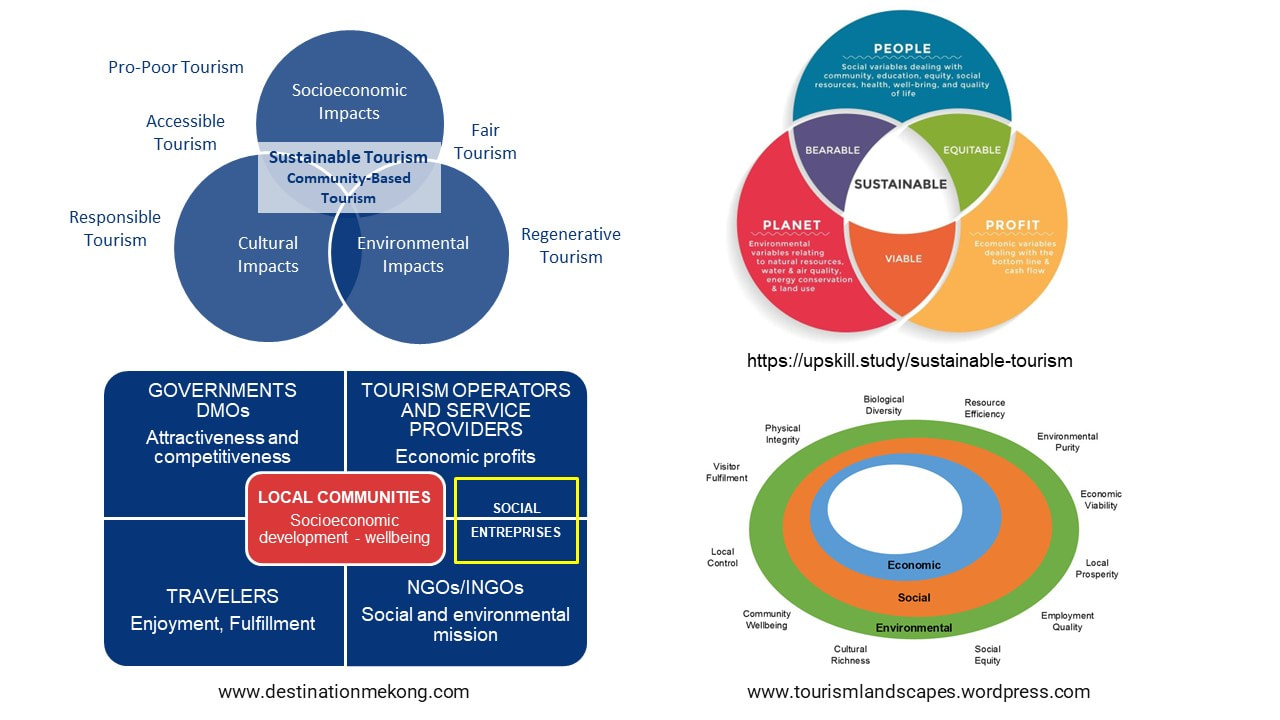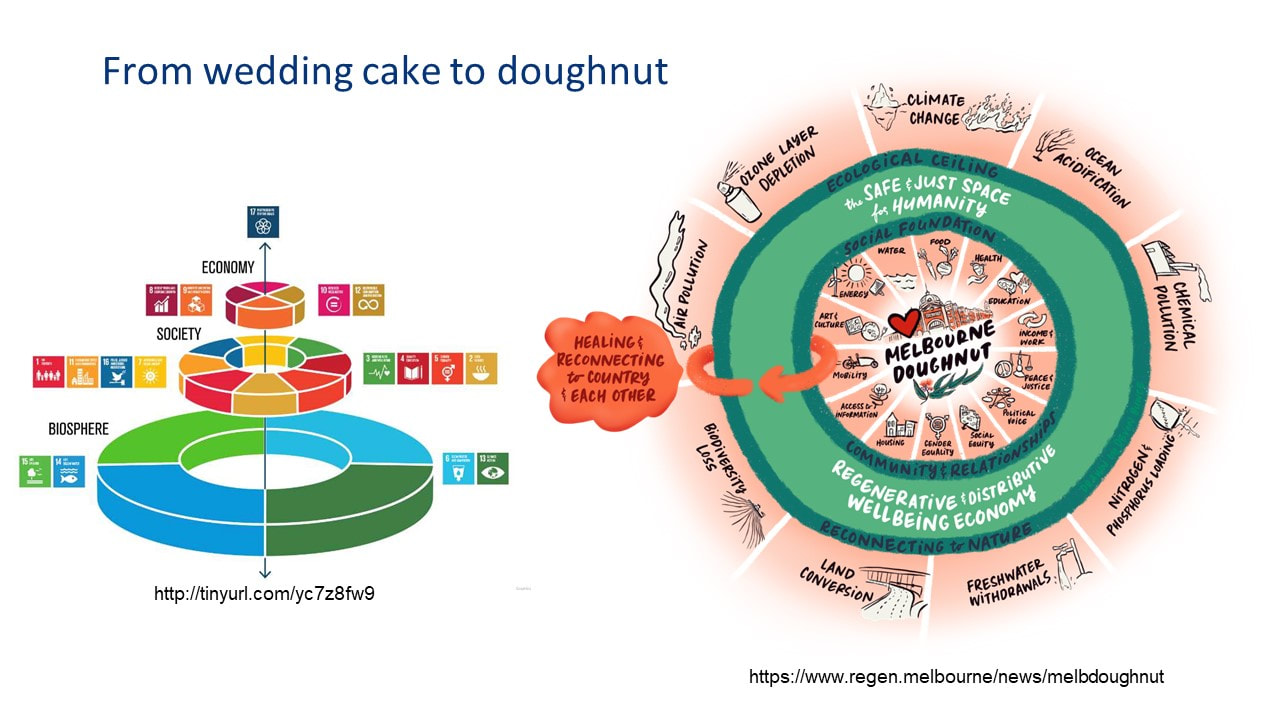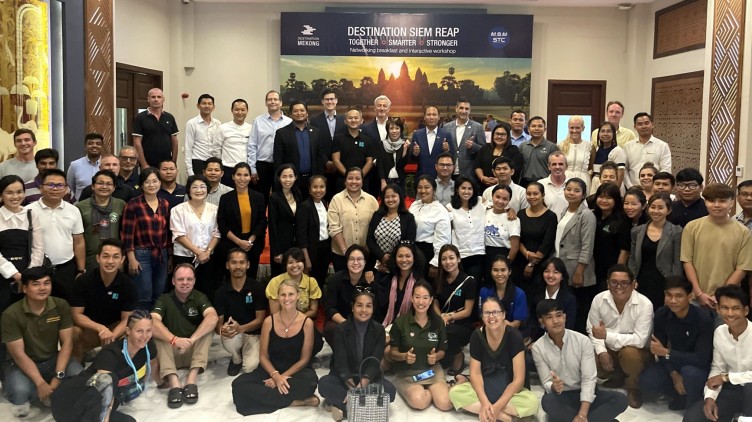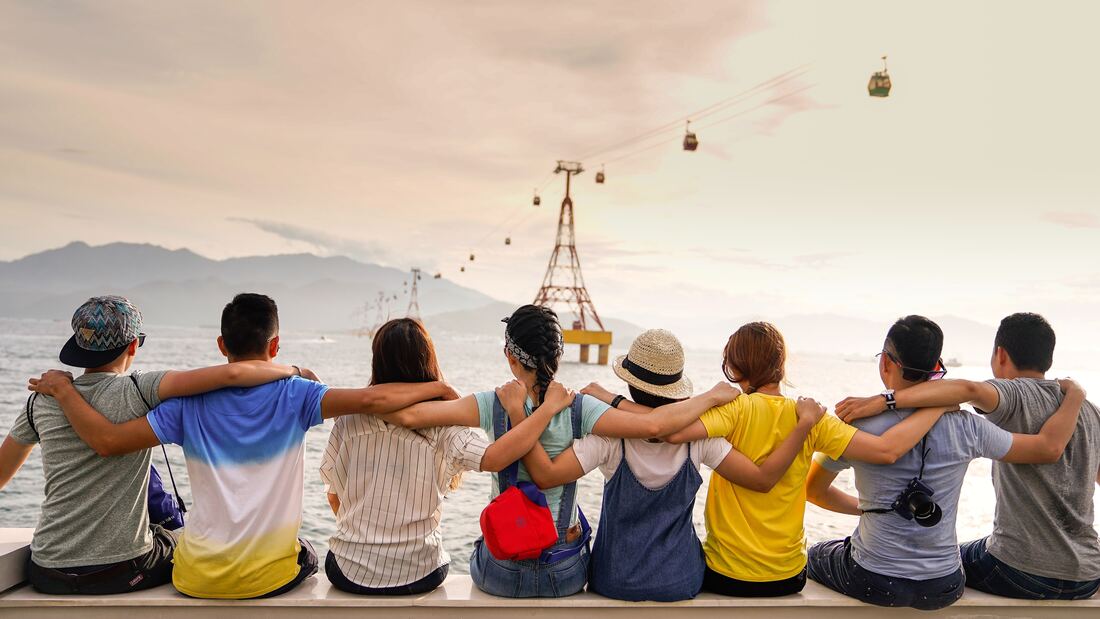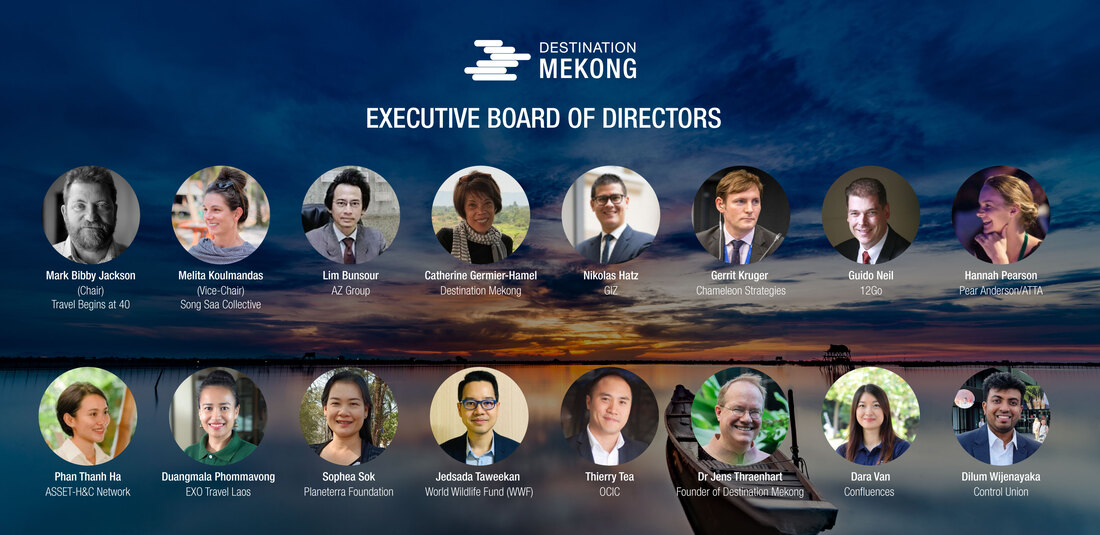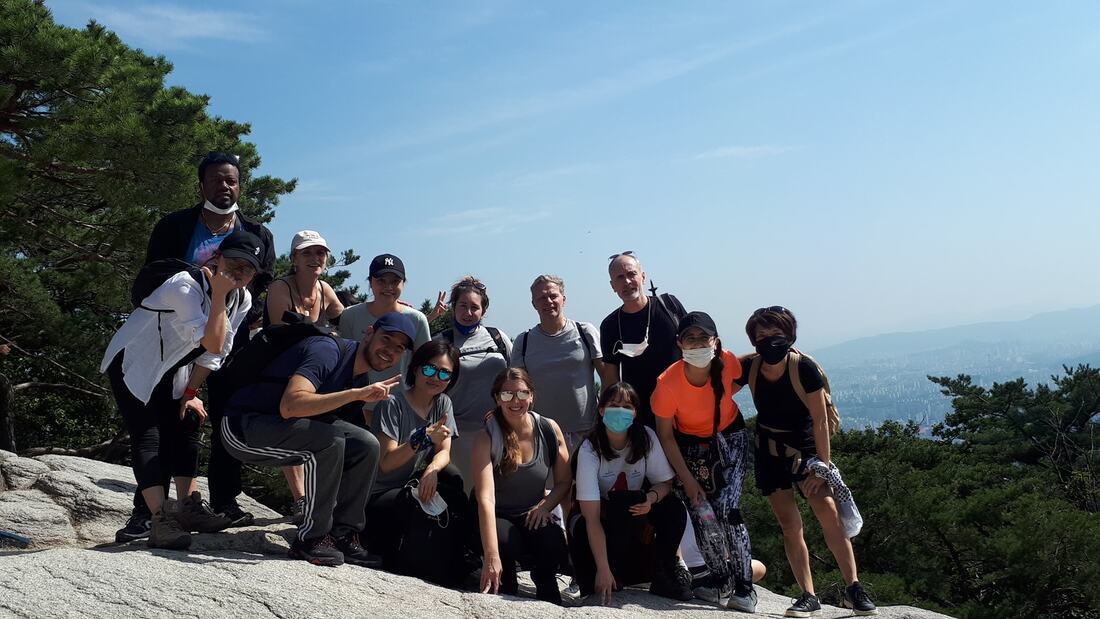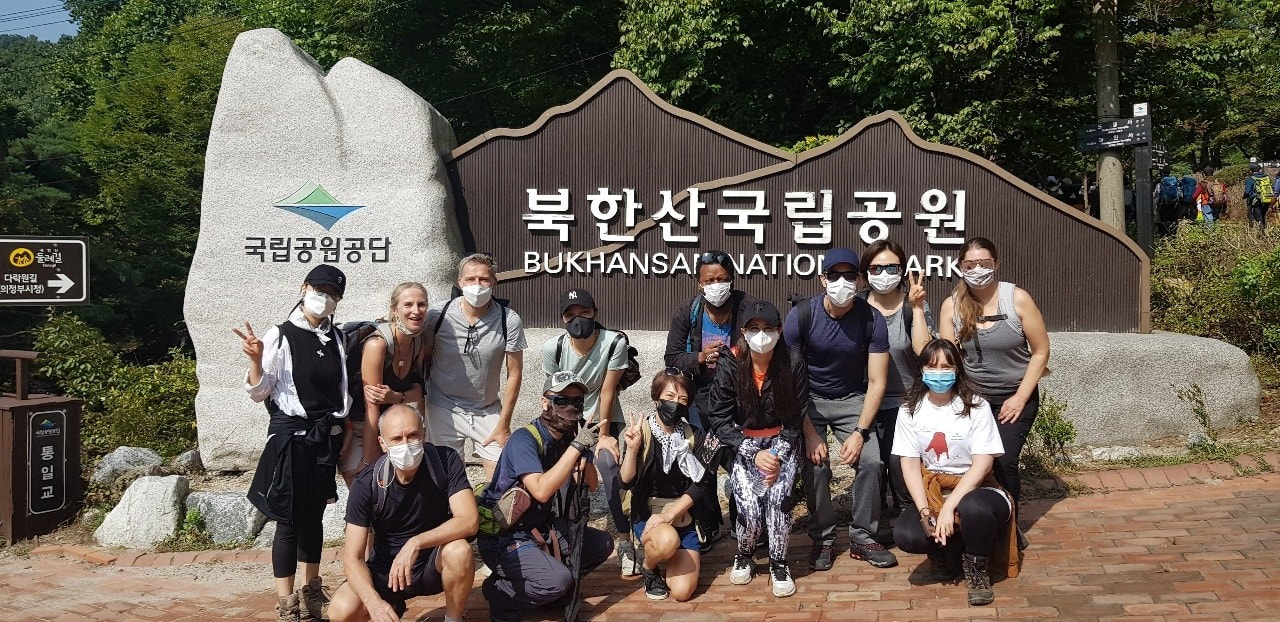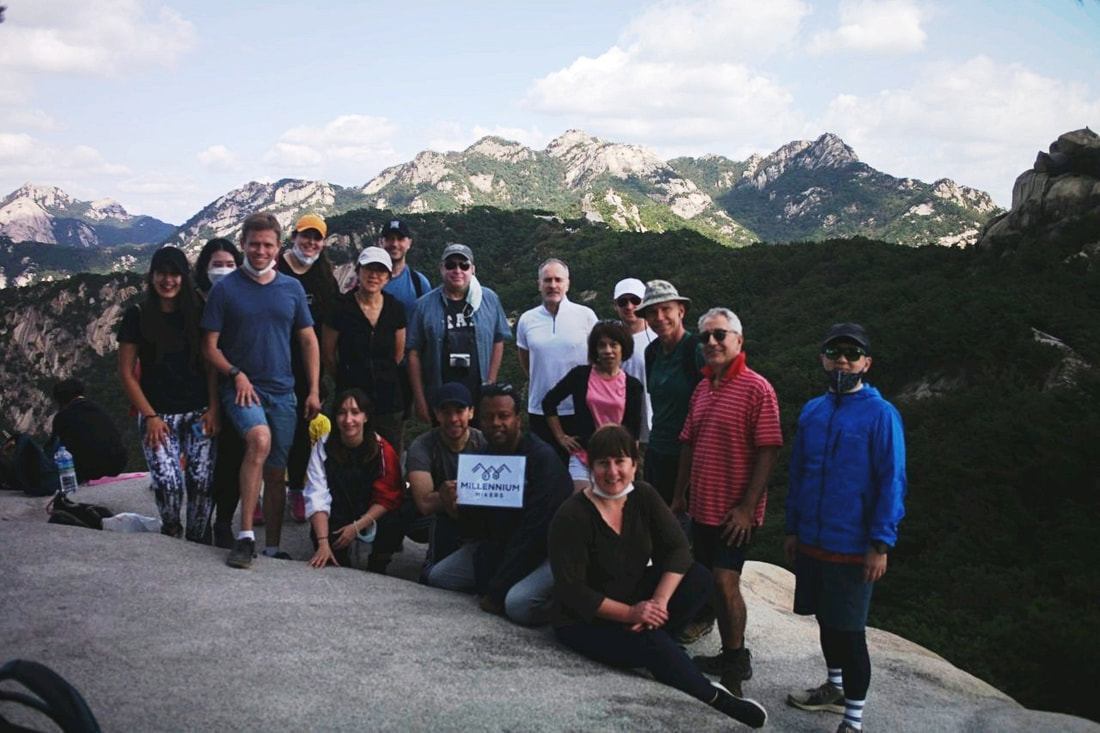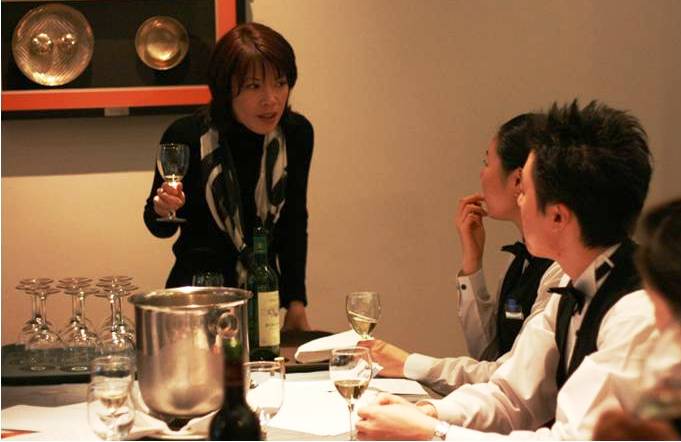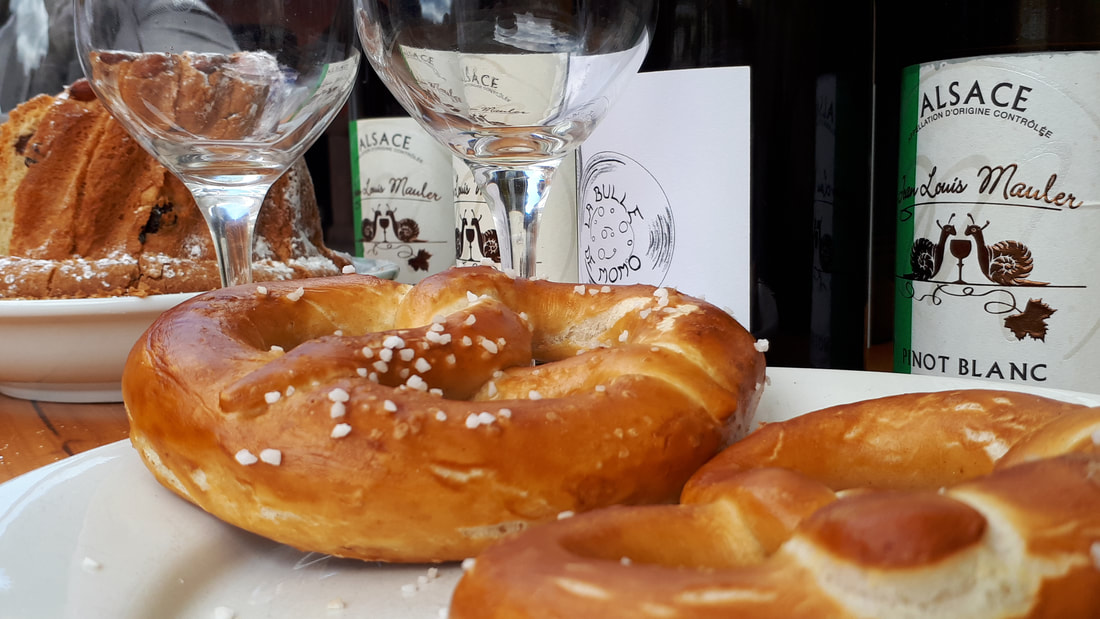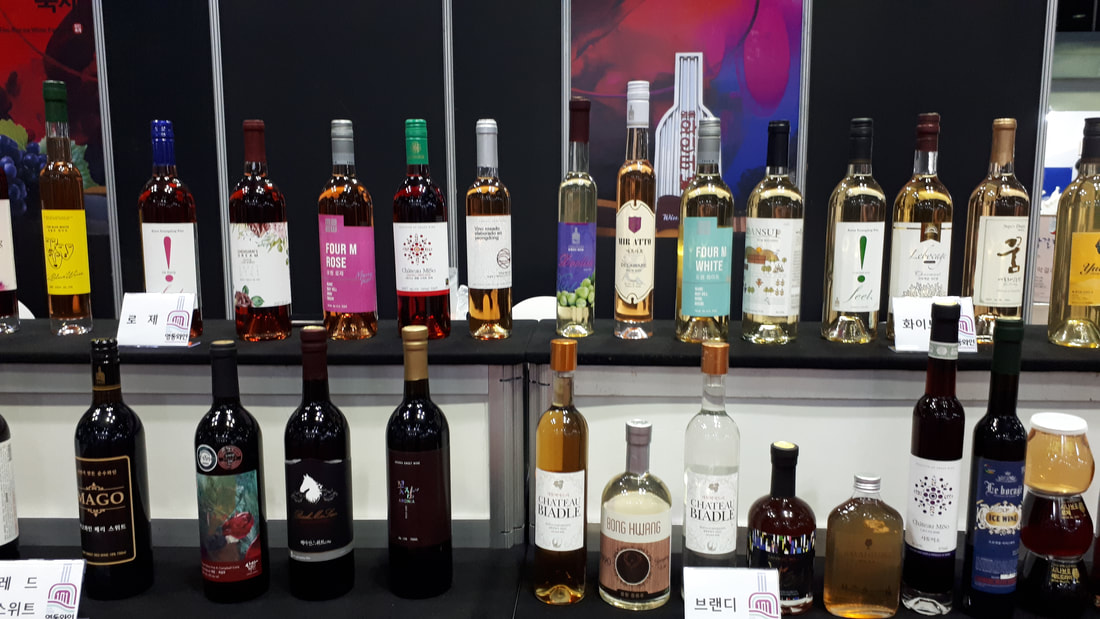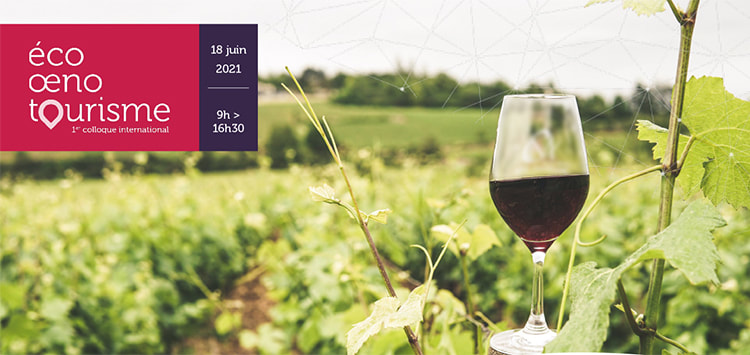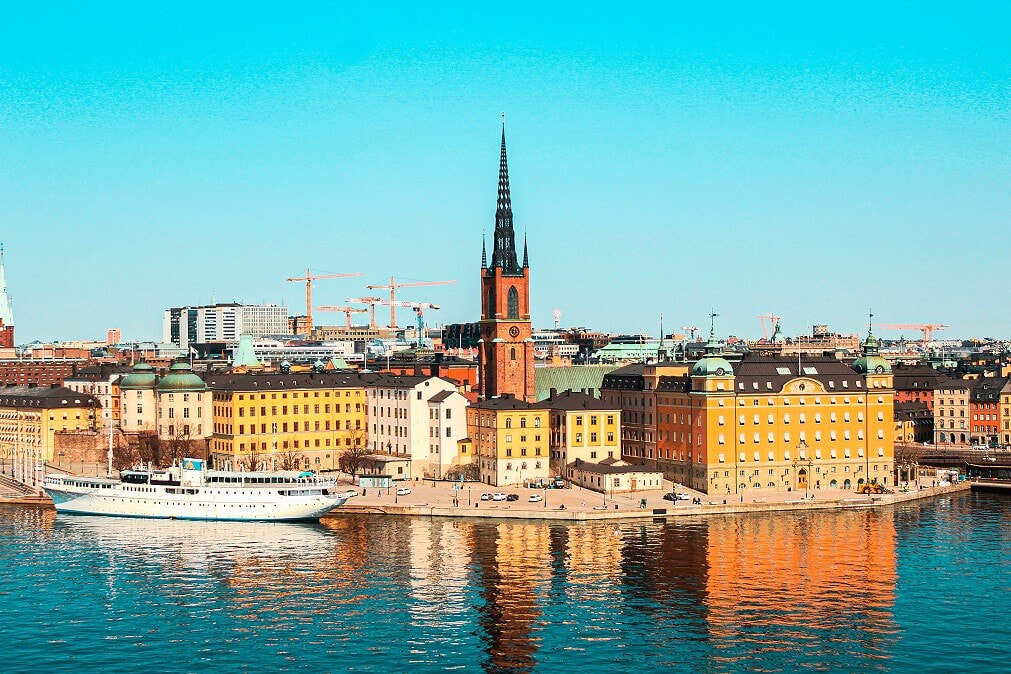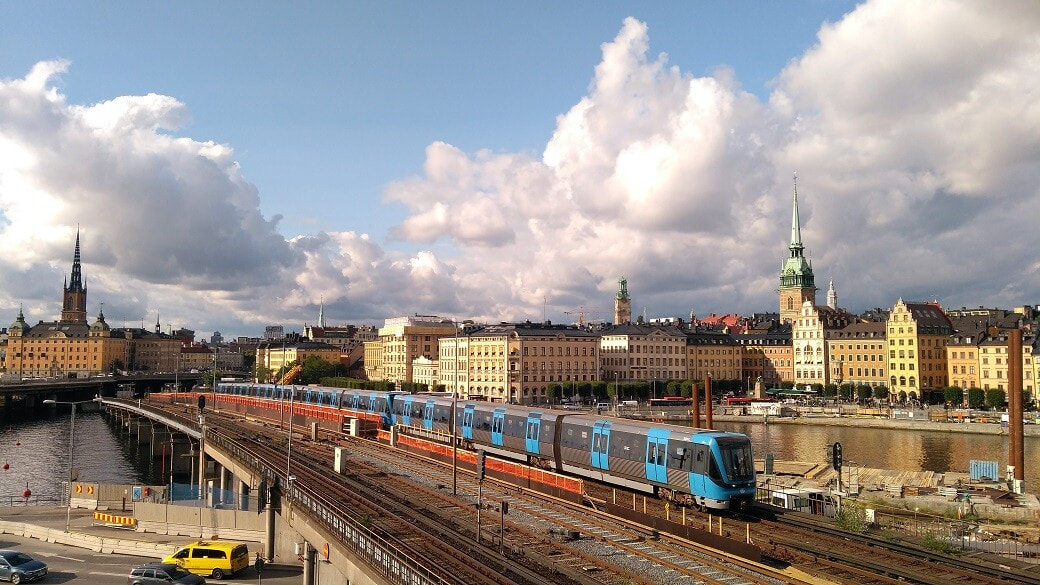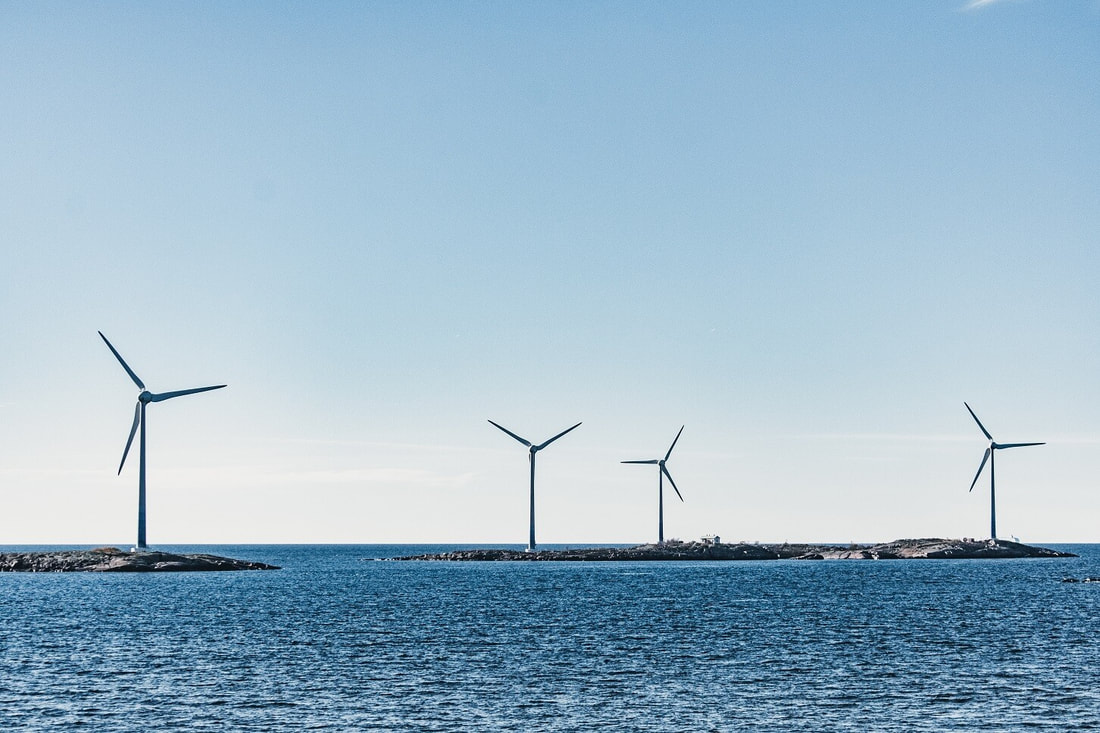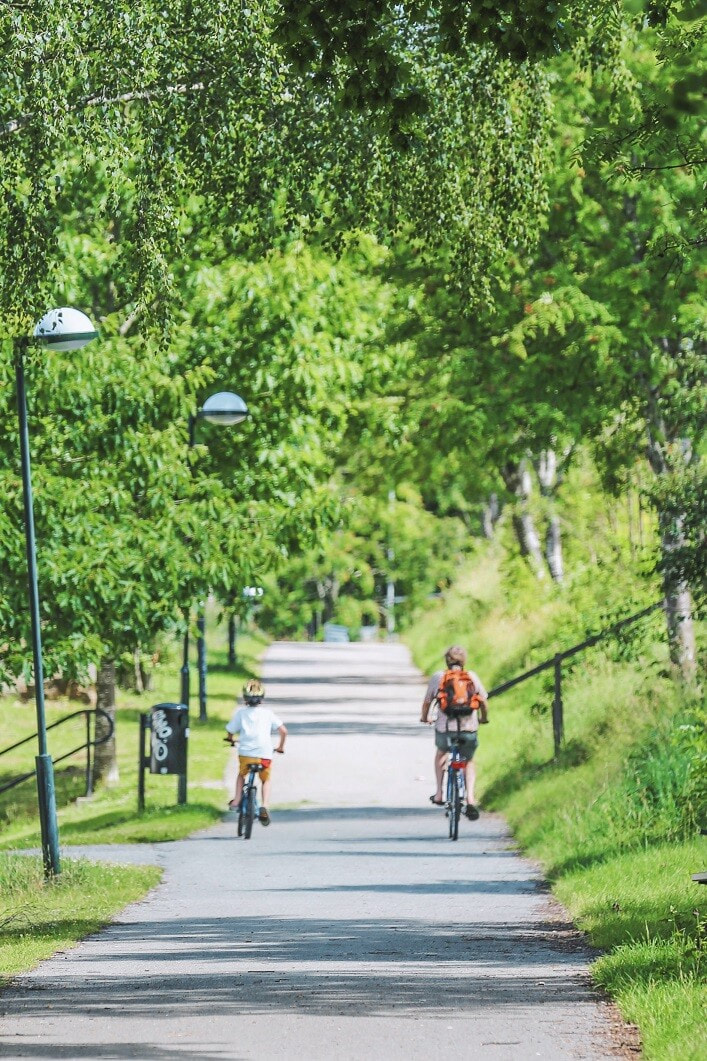|
Sustainable tourism has become an imperative as we navigate the challenges posed by environmental degradation, cultural erosion, and the increasing demand for unique and immersive travel experiences. This article proposes a novel conceptualization of sustainable tourism that amalgamates dynamic, impact-driven, holistic, multidimensional, multisensorial, circular, behavioral, metaverse, smart, and regenerative approaches. By synthesizing these diverse elements, we can forge a path towards a more resilient and harmonious relationship between tourism and the environment, communities, and cultural heritage. Dynamic and Impact-Driven TourismDynamic tourism involves adaptability and responsiveness to changing circumstances. In the face of climate change and evolving socio-economic conditions, the tourism industry must continually adjust its practices. An impact-driven approach prioritizes positive contributions to local communities and ecosystems, ensuring that tourism generates tangible benefits rather than exacerbating existing challenges. By integrating these principles, tourism can become a force for positive change, addressing environmental and social issues while fostering economic growth. Holistic and Multidimensional ExperiencesHolistic tourism emphasizes a comprehensive understanding of destinations, considering not only their natural beauty but also their cultural and historical significance. Multidimensional experiences go beyond the superficial, encouraging tourists to engage deeply with the local culture, traditions, and ecosystems. This approach promotes a more profound appreciation for the destinations visited, fostering responsible and mindful tourism. Multisensorial EngagementIncorporating multisensorial experiences into tourism design enhances visitor connection with the environment. By appealing to multiple senses, such as sight, sound, touch, taste, and smell, tourists can develop a richer understanding of the destination. This heightened sensory engagement fosters a sense of responsibility and stewardship towards the natural and cultural assets, encouraging sustainable behavior. Circular and Regenerative TourismCircular tourism adopts principles of the circular economy, minimizing waste and maximizing resource efficiency. This involves recycling, reusing, and reducing waste throughout the tourism supply chain. A regenerative approach takes this concept further by aiming to restore and enhance the natural and cultural environments affected by tourism. By implementing circular and regenerative practices, tourism becomes a regenerative force, contributing positively to the ecosystems and communities it touches. Behavioral and Smart TourismUnderstanding and influencing tourist behavior is crucial for fostering sustainability. Behavioral approaches leverage insights from psychology and sociology to encourage responsible choices. Smart tourism employs technology, data, and artificial intelligence to optimize resource use, manage tourist flows, and enhance the overall tourism experience. Integrating these approaches can guide tourists towards sustainable choices while optimizing operational efficiency. Metaverse IntegrationThe metaverse, a digital space merging virtual and physical realities, can be harnessed to offer immersive, educational, and sustainable tourism experiences. Virtual exploration allows tourists to preview destinations, reducing physical footprints and promoting responsible travel decisions. The metaverse can also serve as a platform for community engagement, cultural preservation, and environmental education. In reimagining sustainable tourism, a confluence of dynamic, impact-driven, holistic, multidimensional, multisensorial, circular, behavioral, metaverse, smart, and regenerative approaches offers a holistic framework for a more sustainable and responsible tourism industry. By embracing these principles, stakeholders can collaboratively build a tourism ecosystem that not only benefits local communities and ecosystems but also enriches the overall travel experience for tourists. This approach represents a paradigm shift towards a more harmonious and enduring relationship between tourism and the environment, ultimately paving the way for a more sustainable and resilient future.
0 Comments
In the ever-evolving world of Asian tourism, micro and small to medium-sized enterprises (SMEs) face unique challenges and opportunities. These businesses, including social enterprises, form the lifeblood of the industry, offering authentic and personalized experiences to travelers. Understanding their distinct needs and challenges is crucial. In this article, we will delve into the specific hurdles faced by micro and SMEs and how Destination Management and Marketing Organizations (DMOs) are not just solution providers but also facilitators and connectors that can help these small players thrive in the Asian tourism landscape. Additionally, we will explore the vital role of Regional Cross-Border Tourism Organizations (RTOs), such as Destination Mekong, in promoting collaboration and sustainable tourism development across borders. Understanding DMOs: Nurturing DestinationsA Destination Management and Marketing Organization (DMO) is a specialized entity dedicated to enhancing the appeal and competitiveness of a tourist destination. DMOs come in various forms, including government agencies, non-profit organizations, or public-private partnerships. Regardless of their structure, their central mission is to nurture and promote the unique attributes of a region, making it a compelling and sustainable choice for domestic and international visitors. DMOs focus on strategies that encompass marketing, visitor services, and sustainability, ensuring that destinations thrive while preserving their unique natural and cultural assets. Moreover, the core objective is to empower businesses operating in the tourism sector, including micro, small, and medium-sized enterprises (SMEs), as well as social enterprises. DMOs achieve this by providing valuable resources, fostering collaboration, and facilitating access to markets and industry knowledge. Ultimately, their mission is to enable these businesses to thrive and contribute to the overall growth and vitality of the destination's tourism industry while preserving its cultural and environmental heritage. Examples of DMOs in AsiaNational DMOs in Asia have made significant contributions to the tourism industry:
Understanding the Special Needs and Challenges of Micro and SMEsMicro and SMEs often lack the resources and reach of larger corporations. They may struggle with limited marketing budgets, access to technology, and the ability to compete on a global scale. These businesses also face regulatory and compliance challenges that can be daunting. Moreover, they operate within communities and are deeply connected to local cultures and environments, making sustainable practices and responsible tourism crucial. Recognizing these unique needs and challenges is the first step toward empowering micro and SMEs in the tourism sector. DMOs as Solution Providers, Facilitators, and ConnectorsDestination Management and Marketing Organizations, or DMOs, are the linchpins that can enable micro and SMEs to overcome their challenges and tap into the vast potential of the tourism industry.
Regional Cross-Border Tourism Organizations (RTOs)Regional Cross-Border Tourism Organizations, such as Destination Mekong, focus on promoting collaboration and sustainable tourism development across borders in the Asian region. These international organizations represent countries within the region and facilitate cross-border partnerships among micro, SMEs, and social enterprises. RTOs aim to create a unified and attractive regional destination while building capacity, promoting sustainable practices, and enhancing public-private cooperation. Destination Mekong, for example, fosters connections and cooperation among Mekong countries to drive sustainable tourism growth and benefit small players in the industry. Destination Mekong: A Regional Cross-Border DMO Destination Mekong represents the six countries across the Mekong region, namely Cambodia, PR China, Lao PDR, Myanmar, Thailand, and Vietnam, fostering collaboration and sustainable tourism development. With the main purpose of promoting sustainable and inclusive tourism ecosystems in the Mekong region, Destination Mekong strengthens the tourism industry and especially micro, SMEs, and other stakeholders and promotes the region as an attractive, sustainable destination creating value for all. Benefits of DMOs and RTOs for Micro and SMEs
ConclusionIn the Asian tourism landscape, micro and SMEs are the heartbeat of authentic and unique experiences. By recognizing their special needs and challenges and by partnering with DMOs and RTOs as solution providers, facilitators, and connectors, these small players can thrive and contribute to the vibrant tapestry of Asian tourism. DMOs and RTOs are not just essential; they are the catalysts that can transform challenges into opportunities, fostering a more inclusive and sustainable tourism industry for all. Get in touch with us to gain a deeper understanding of how your business can fully leverage the benefits of joining a DMO/RTO. #TourismEmpowerment #SMEsInTourism #SmallBusinessTourism #SocialEnterpriseTravel #MicroBusinessTourism #SustainableSMEs #TourismGrowth #LocalBusinessSuccess #TravelForGood #CommunityTourism #ResponsibleTravel #EmpoweringEntrepreneurs #InclusiveTourism #SustainableHospitality #TourismPartnerships
Sustainable Tourism Certification for SMEs and Destinations in Asia: Navigating the Path to Success9/26/2023 In the bustling landscape of Asian travel, tourism, and hospitality, small and medium-sized enterprises (SMEs) are the unsung heroes, shaping unforgettable experiences for visitors. Yet, they face unique challenges, especially when it comes to embracing sustainability. This article is your compass, designed for both destination managers and passionate professionals, highlighting the needs, the shared hurdles, and shining a light on the transformative power of sustainability certification. As you embark on this journey, remember, the support you need is right at your fingertips. Understanding the Shared ChallengesSustainability should be a top priority for the tourism industry, but the path towards it can feel daunting for many destination managers as well as micro- and SMEs. Here are some of the common reasons why:
Overcoming Reluctance with Success StoriesDespite these challenges, there are a number of ways for destination managers and SMEs to overcome them and achieve their sustainability goals. Here are a few tips:
Join the Journey Towards Sustainable Success in Asian Tourism!In the dynamic world of Asian travel, tourism, and hospitality, we, as destination managers and SMEs, hold the power to lead the way towards a more sustainable future. While the road ahead may seem daunting, let's not be deterred. By sharing inspiring success stories and guiding our local businesses toward a brighter and more responsible tomorrow, we can create destinations that leave lasting impressions on travelers, enrich our communities, and preserve Asia's natural beauty for generations to come. Are you a destination or a small business in Asia's lively tourism and hospitality sector? Now is the perfect time to explore the possibilities of sustainability certification. It's not just about meeting standards; it's about securing your place in a responsible and competitive future.
We wholeheartedly invite you to reach out to our experts who truly understand your unique needs and challenges. Together, we can navigate this journey towards sustainable success! Phnom Penh, Cambodia Destination Mekong (DM), a membership-based destination management and marketing organisation championing the Mekong region, had its second Annual General Meeting (AGM) on 4 July 2023. The AGM took place virtually, with full and affiliate DM members in attendance worldwide. The meeting started with remarks by Mark Bibby Jackson, Chair of Destination Mekong’s Executive Board of Directors, Melita Koulmandas, Vice-Chair of the Board, and Gerrit Kruger, Chief Marketing Officer of Destination Mekong. It continued with a presentation by Catherine Germier-Hamel, CEO, on the current status of the organisation, its strategies and action plan to engage and serve its community of members and partners. The Chair of the Board thanked the executive team for all their work this past year. “We are seeing that Destination Mekong is well positioned to play its role as a supporter of the small players in the region. Micro and small tourism businesses make up most jobs in the region and greatly impact their communities and the environment. Our goal of promoting sustainable and inclusive tourism ecosystems in the Mekong region, creating value together with our members and partners is now more relevant than before”. Together | Stronger | SmarterThe CEO of Destination introduced the creative partnerships and collaborations developed over the past year, materialised by a series of multi-stakeholder events such as the Destination Mekong Summit in December 2022, Destination Siem Reap, a program of webinars and workshops organised for members. “Our focus is to increase the value and benefits we offer to our members through building their capacity and providing them with better access to markets, networks, tools, technologies, funding, and business opportunities, together with our partners. We are willing to facilitate an innovative platform to promote sustainable and inclusive tourism ecosystems creating value for all involved players in the Mekong region. We will also create local chapters to engage with professionals and businesses at a grassroots level.” Members are invited to join three new working groups: Cruise & River-based tourism, in collaboration with FrauBlau by tmf dialogue marketing in Germany; ecotourism & community-based tourism; and tourism & hospitality certifications. Moreover, Destination Mekong will focus on already launched initiatives and solutions, such as its Experience Mekong Collection (EMC), featuring eco-friendly tourism experiences offered by small businesses in the region in the categories STAY, DO, TASTE, TOUR, SHOP, and CRUISE. Catherine Germier-Hamel commented, “Unfortunately, several EMC members had to close during the Covid-pandemic, and many are still struggling after these difficult years. We invite all of them to join us to jointly rebuild a strong committed network and strengthen the Mekong region’s tourism industry.” Mekong in Motion | Mekong Emotion(s)Gerrit Kruger presented last year’s Mekong Stories book and website with Mark Bibby Jackson, also the Editor in Chief of the publication. “It is important that we tell the stories of individuals and the impact they make on the industry,” said Gerrit Kruger. “It is amazing to see the inspiration others find when listening to those voices, which are normally not heard. Even though many small business owners in the hospitality and tourism sector face challenges, they become stronger when working with others. We invite everyone to send us stories for the next issue of the Mekong Stories book to show that tourism is a force for good.” Then, Full members elected four new board members, corresponding to half of the board members to be elected or re-elected every year for a two-year term, according to the DM Charter. The other executive board seats are given to supporting organisations, and ex officio seats are for the CEO and the founder, Dr Jens Thraenhart. The eight candidates for the four seats open to elections introduced themselves before the vote through an online system. By the Charter, full members were invited to rank the candidates by order of preference. As a result, three people are now officially joining the Executive Board:
To be part of Destination Mekong's community and enjoy the benefits and opportunities offered by DM, go to https://www.destinationmekong.com/membership/
Opening new opportunities for ecotourism in Cambodia through trail development and restoration4/5/2023 Sustainable Ecotourism in Cambodia Takes a Big Step Forward with International-Standard Trail Development and Trail Restoration 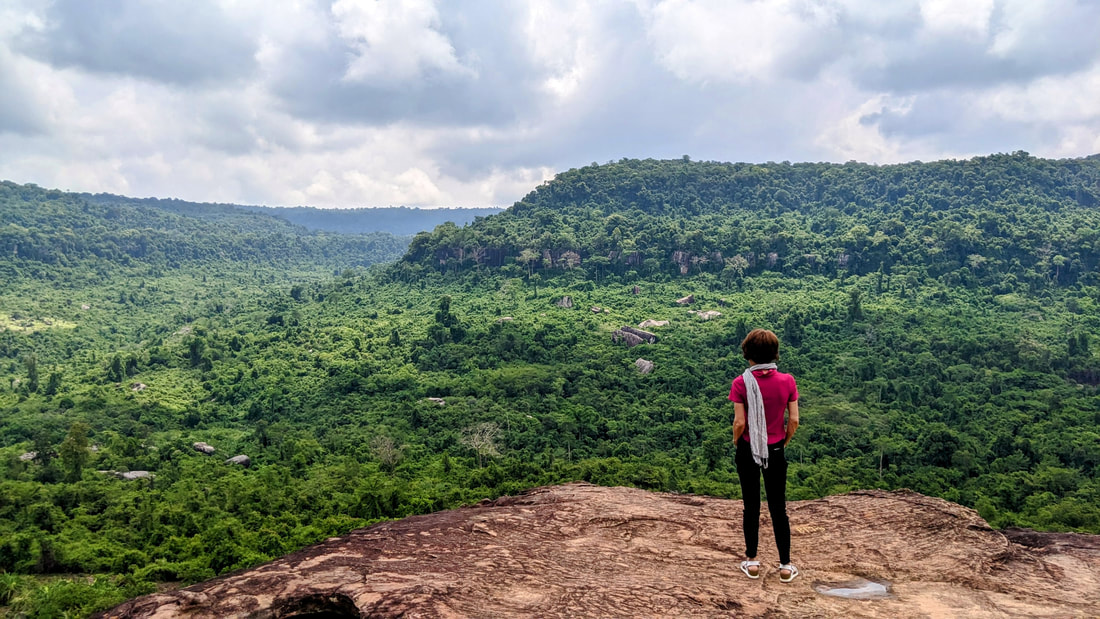 Key trails on the holy mountain of Phnom Kulen are undergoing redevelopment and restoration for nature lovers to explore in the coming months. These routes are the first in a series of sustainable trails that will be developed in Cambodia, designed and built to international best-practice standards. These new trail corridors are designed to provide visitor-friendly information and safety tips, provide an enriched trail experience and be accessible year-round in the face of weather-related environmental conditions. Two international experts are in-country to assist with the training and planning of the trails, including Mr. Galeo Saintz, previously Founding Chair of the World Trails Network, and experienced US-based trail builder and educator Mr. Kevin Simpson. Together, they have provided guidance and best-practice learning for the Cambodian trail builders in a customized training course in Siem Reap and Phnom Kulen. Designed from a trail user’s perspective, the trails will offer a range of facilities for visitors including a standard trailhead, information centers, rest areas and viewpoints along the routes. These trails will be designed and built by certified Cambodian trail builders and trail auditors responsible for carrying forward the mission of Cambodia’s trails. Due for publication in the coming months, the ‘National Trails Guidelines for Cambodia’ will steer the entire process and help to set the standard. The trail management development is aligned to the World Trails Network’s Green Flag Trails certification process and Cambodia plans to become the first country in Southeast Asia to offer Green Flag Trails certified trails. The current trails on Phnom Kulen feature a mix of culture and nature experiences, passing through some of the majestic waterfalls and ancient archaeological sites of the sacred mountain. Routes will include gentle looping trails around key attractions such as the River of a Thousand Lingas and the Reclining Buddha, as well as a realigned Waterfall Trail and the Hidden Boulders Trail. There will be the opportunity for overnight camping at community-based ecotourism (CBET) campsites at strategic points along the way. The development of world-class trails in Cambodia as a key element in the ecotourism offer also marks a new journey for repositioning and diversifying Cambodia’s current tourism offering towards outdoor, nature-based experiences. Cambodia has long relied on the Temples of Angkor to draw international visitors, but as back-to-nature experiences took off during the pandemic, it is time to show another side of the Kingdom. In the domestic market, ecotourism activities such as trekking and cycling boomed during the pandemic, ensuring that Cambodia is in a strong position to benefit from both an international and domestic ecotourism market moving forward. For international visitors, ecotourism activities ensure a longer stay in Cambodia and help position the country as a standalone destination for a longer trip and not just as an extension destination to neighboring Vietnam and Thailand. The Ministry of Environment (MoE) will lead this process and aims to develop more than 500km of trails in the Kingdom over the next three years. Three Protected Areas (PAs), in particular, will be covered as part of this trail development process under this initiative: Cardamom Mountains National Park, Kirirom National Park and the Aural Wildlife Sanctuary. Plans will include a new Trans-Cardamom Trail to bridge the ‘missing link’ between Kompong Speu Province with Koh Kong Province via Khnong Phsar and Khnong Krapeau. The MoE is setting up a ‘Trails Working Group’ to oversee the future planning, construction and maintenance of the trails. This trail journey will enhance income opportunities for local communities, as they will be involved in the construction and maintenance of the trails. The Cambodia Sustainable Landscape & Ecotourism Project (CSLEP)
A partnership between the Ministry of Environment (MoE), the Ministry of Rural Development (MRD), and the World Bank (WB), the CSLE Project is working to improve PA management and promote ecotourism and non-timber forest product (NTFP) value chains in targeted areas of the Cardamom Mountains-Tonle Sap (CMTS) landscape. By strengthening the enabling environment, CSLEP will help promote private sector investments in ecotourism, private sector-led ecotourism development and Public-Private-Partnership (PPP) opportunities. Global experiences from well-developed ecotourism and nature-based tourism markets demonstrate that private sector participation in ecotourism stimulates competitiveness, development of high-quality ecotourism offerings and increased potential for ecotourism as an economic growth engine. A specific focus will be to invest in critical infrastructures such as connectivity, visitor centres, bathrooms, car parks and more. The resulting improvements in governance, management and regulations relating to the target areas, coupled with investments in connectivity and ecotourism infrastructure are expected to stimulate private sector investments. The partnership between MoE and WBG to implement the CSLE Project will ensure that the private sector can plan sustainable ecotourism investments in the PAs with clarity and confidence. For further information on the Trails development work in Cambodia, please contact: [email protected] Millennium Destinations is a signatory of the Glasgow Declaration on Climate Action in Tourism12/3/2021 As a signatory and launch partner of the Glasgow Declaration on climate Action in Tourism, Millennium Destinations steps forward as a global leader working to accelerate climate action in tourism. Launched on 4 November 2021 at the COP 26 UN Climate Change Conference, the Glasgow Declaration on Climate Action in Tourism intends to unites travel and tourism stakeholders behind a common set of pathways for climate action, aligning a united sector with global commitments and catalyzing collaborative solutions to the many challenges facing businesses and destinations globally. The Glasgow Declaration on Climate Action in Tourism brings together the latest research and global expertise to galvanise climate action. It is hosted within the One Planet Sustainable Tourism Programme’s website, and includes Recommended Actions for tourism stakeholders across the world to consider as part of their action planning, alongside other resources. The implementation of the Glasgow Declaration is led by the World Tourism Organization (UNWTO) in collaboration with the Travel Foundation and Tourism Declares a Climate Emergency, within the framework of the One Planet Sustainable Tourism Programme. As a signatory of the Glasgow Declaration, Millennium Destination commits to:
"More than ever, the global tourism industry has a unique opportunity to demonstrate its transformative power through inspiring and driving climate action. It’s not only an emergency but also a matter of human dignity." Millennium Destinations is therefore determined to mobilize its networks, resources and solutions to support the Declaration and climate action, especially through its impact-driven travel platform Herost and the Millennium Hikers initiative, both listed as projects of the One Planet Sustainable Tourism Programme.
Key partners of Millennium Destinations have also signed the Declaration, including Corée Voyage, a Destination Management Company headquartered in Seoul, Republic of Korea, and Destination Mekong, the tourism marketing organization dedicated to the promotion of the Greater Mekong Sub-region as a leading sustainable destination. Destination Mekong Takes The Next Step Towards Boosting Tourism Recovery in the Mekong Region11/17/2021 Destination Mekong is strengthening its executive capacities towards playing a leading role in the post-COVID tourism recovery in the Greater Mekong Subregion (GMS). As the global tourism industry is slowly getting back on track, Destination Mekong (DM) is taking a new step as the regional tourism organization dedicated to championing the Lancang-Mekong region, comprising of Cambodia, PR China (Provinces of Guangxi and Yunnan), Lao PDR, Myanmar, Thailand, and Viet Nam, as a sustainable and inclusive tourism destination. Destination Mekong officially introduced its new Executive Team at the beginning of the 2021 Destination Mekong Summit, which took place online on 21 and 22 October 2021, under the theme of "Re-start > Re-form > Re-balance". On this occasion, Jens Thraenhart, Founder of Destination Mekong and former Executive Director the Mekong Tourism Coordinating Office (MTCO), presented the four members of the DM "Dream Team": Catherine Germier-Hamel, Gerrit Kruger, Gavin Bell, and Jens Uwe Parkitny, which all had the opportunity to share their visions and passions in taking their new responsibilities. Recordings of the 2021 DMS here: https://www.destinationmekong.com/dms21/. Thraenhart stressed that the new Executive Team was "truly world-class and made of experts in their fields, to make sure Destination Mekong can grow and aid the acceleration of the recovery in the Mekong Region". He stated that his "proudest accomplishment was to set up a private sector-led regional tourism board with innovative and award-winning programs and initiatives, to execute the mandate of the Mekong Tourism Coordinating Office (MTCO) to foster public-private sector cooperation." On 1 November, Jens Thraenhart started a new career as CEO of Barbados Tourism Marketing Inc. Meet the new Executive Team of Destination Mekong The appointment of Catherine Germier-Hamel as Chief Executive Officer, Gerrit Kruger as Chief Marketing Officer, and Gavin Bell as Chief Development Officer was effective 1 November. Jens Uwe Parkitny is acting as a strategic advisor in an honorary capacity. Germier-Hamel, a Eurasian born in France with family heritage from the Mekong region, has lived in Seoul, South Korea, since 2005. Over the past 15 years, she has developed an international career as sustainable tourism development and marketing consultant, and impact entrepreneur as the Founder and CEO of Millennium Destinations and Herost. Gerrit Kruger, a German national, has been involved in the management of Destination Mekong since its creation in 2017 while serving as Managing Director of Chameleon Strategies, an innovative Strategy Think Tank, and an Affiliate Member of the United Nations World Tourism Organisation. Since 2018, Gavin Bell, a British citizen, gained expertise over nearly 30 years of working with governments, international organizations, and the private sector on sustainable tourism initiatives based in Phnom Penh and working with the Ministry of Tourism. Jens Uwe Parkitny, German, is a well-known tourism executive who has worked for prominent travel and hospitality brands in the Asia Pacific Region. He is the co-owner of Loikaw Lodge by the Lake in Myanmar. Destinations Mekong setting up the next steps to fulfill its mission Destination Mekong is currently in the process of being incorporated as a legal entity in Singapore. Its executive office will be hosted by the Ministry of Tourism of the Kingdom of Cambodia in Phnom Penh, under a Memorandum of Understanding (MoU) between DM and the Ministry of Tourism, which will also assign local staff. Over the following months, the Executive Team will focus its efforts on building a strong community of individual, corporate and institutional members and raising funds to support its operations. Its short-term action plan also includes the publication of the Experience Mekong Collection, showcasing responsible and sustainable travel experiences in the Greater Mekong Subregion, and implementing value-added services and solutions to enhance the exposure of its members. Additionally, Destination Mekong will develop strategic partnerships with organizations sharing the same values and interests. As a start, Destination Mekong has signed a Memorandum of Understanding (MoU), with the Pacific Tourism Organization (SPTO), to develop mutual tourism collaboration between the six countries of the Greater Mekong Subregion and 20 Pacific Island countries (PICs), based on sharing information, knowledge, and best practices to foster sustainable and inclusive tourism. During the 2021 DM Summit, the Greater Mekong Subregion (GMS) Tourism Recovery Communications Plan "Unlimited Experiences, Unlimited Stories" was also unveiled, establishing a framework for the activities of Destination Mekong. Committed to playing a leadership role within the global tourism community, Destination Mekong became a proud signatory of the Glasgow Declaration on Climate Action in Tourism launched on 4 November 2021 during the UN Climate Change Conference (COP26). The Glasgow Declaration encourages the acceleration of climate action in tourism by securing commitments to reduce emissions in tourism by at least 50% over the next decade and achieve Net Zero as soon as possible before 2050. "More than ever, the global tourism industry has a unique opportunity to demonstrate its transformative power through inspiring and driving climate action. It's not only an emergency but also a matter of human dignity." Hooked on HikingWho does not like hiking ? Don't answer "me", we know what you did last summer (or even last weekend)! That's a fact, the past years have seen a growing (or renewed) interest in outdoor activities across the world. Interestingly, the younger generations, and particularly Millennials (those born between 1981 and 1996) seem to drive this trend. For example in Korea, where 70% of the land is covered with mountains, hiking has long been part of the culture and the national identity. Every weekend, almost all year round, the country's numerous trails have been crowded by millions of avid hikers, mostly in their 40s or 50s. However, young Koreans have traditionally not shared the same appetite as they basically viewed hiking as a social and professional obligation and therefore a chore. The situation changed when hiking became a popular Instagrammable experience and "outdoor" became synonymous with "escape" and "relief" in the context of the COVID-19 pandemic. This recent fondness is not specific to Korea and in many countries, hiking is hip, as well as biking, camping, etc. We can only praise the increasing popularity of outdoor recreational activities due to their many benefits for the mind and body. However, we should keep in mind that they may also have negative impacts on the local populations and environments if not properly supervised and controlled. Indeed, massive flows of hikers can not only be detrimental for the flora and fauna but also be a source of disturbance for the locals who may not be prepared to welcome crowds during off-peak season. On the other hand, hiking can be an engaging tool to promote responsible behaviors and sustainable practices. Millennium Hikers promoting InclusivenessOn October 3rd, 2021, Millennium Destinations organized a special hiking event in Dobong mountain (aka Dobongsan), located in the northeastern section of Bukhansan National Park in Seoul, South Korea. This international event was aimed at celebrating the 2021 World Tourism Day and 개천절 (Gaecheonjeol), the National Foundation Day of Korea. This year, WTD's theme was "Tourism for Inclusive Growth" and this hike put it into practice by making sure no one was left behind (unless they wished it). The hike gathered a very diverse group of Millennium Hikers from Canada, China, Colombia, France, Germany, Korea, Morocco, Vietnam, and the US. Sustainability in motionMillennium Hikers is a global initiative promoting local sustainable development and community empowerment through responsible, intercultural outdoor experiences such as hiking and walking, in a wide variety of environments. Millennium Hikers is also an international community of hikers and walkers committed to have a positive impact on people and the planet. In 2021, Millennium Hikers was registered as a French association (loi 1901). Millennium Hikers is a project of the One Planet Sustainable Tourism Programme, a multi-stakeholder partnership that promotes knowledge sharing and networking opportunities to better implement sustainable consumption and production in the tourism sector. Facebook: https://www.facebook.com/groups/millenniumhikers Instagram: @millenniumhikers_ Would you like us to organize YOUR Millennium Hikers event?
Has the COVID pandemic created new opportunities for the global wine tourism? In spite of a slight decrease in 2020 (-2.8%), the worldwide wine consumption is expected to bounce back this year. In South Korea, ranked as the second most attractive wine market in the world, wine imports hit a new high, especially due to increased home and solo consumption. Indeed, the Korean wine market is still growing and maturing, mostly driven by women and young drinkers. Since her arrival in Seoul in 2005, Catherine GERMIER, Founder & CEO of Millennium Destinations, has been active in promoting wine knowledge and appreciation in Korea through a variety of events and initiatives such as Wine & Women Korea. More recently, she has been been active in fostering wine tourism as a tool for rural development and community empowerment, especially through the Herost online platform featuring eco-friendly travel experiences that are good for People and the Planet. Since April 2021, Millennium Destinations has been partnering with C&Y, a French company supporting independent winemakers in their marketing efforts towards Asian markets and particularly South Korea as pilot country, either under the UniK Wines brand or individually. In August 2021, Catherine GERMIER and Charlène COURTAT, Cofounder & CEO of C&Y, undertook a field trip to French wine-producing regions such as Alsace, Champagne, Roussillon, etc. in order to meet winemakers and wine professionals willing to explore the potential of the Korean market. As a continuation, Millennium Destinations provided its support to C&Y for the organization of its first mission in Seoul, on September 27 to October 4. Since 2019, Catherine GERMIER has been working with public and private organizations and professionals involved in trade and tourism for the identification of eco-friendly wine tourism experiences to be featured in the Herost platform, with a focus on Colombia, the Czech Republic, France, Portugal, Spain, etc. but also less-known yet promising winemaking countries such as South Korea. Since July 2021, Millennium has provided its support to the Czech Tourism Office in Seoul for the development of a sustainable tourism strategy and the design of pilot sustainable tourism products in the Czech Republic, dedicated to the Korean market. This products will highlight rural tourism & agritourism experiences such as farm stays and visits of wineries and breweries. During her visit to the Seoul International Wines & Spirits Expo 2021, Catherine had a chance to notice how wineries have progressed in Korea, as a result of significant R&D efforts aimed at improving winemaking techniques and introducing new grape varieties. Additionally, Catherine attended (online) the 5th UNWTO Global Conference on Wine Tourism which took place on Sept. 9 & 10, in Alentejo, Portugal, under the theme ‘Wine Tourism – a driver for rural development’. On June 18, she had joined a seminar on eco-friendly wine tourism (Œnotourisme et développement durable : l'éco-œnotourisme est-il possible ?) hosted by the Ecole Supérieur d'Agriculture d'Angers (ESA - Higher School of Agriculture of Angers) in France. Millennium Destinations is an accredited operator of the Chèque Relance Export program providing technical and financial support to French SMEs in their efforts to develop their businesses overseas.
Check more here: https://lnkd.in/gKJRy8eK and feel free to contact us if you have any plan to expand your wine-related activities in Korea. Written by: Anneleen Debruyckere, Herost Global Youth Ambassador Scandinavia championing sustainable tourismIn a recent study by Euromonitor, titled “Embracing a Green Transformation for Travel Recovery” and looking at 99 countries, Sweden came out on top for sustainable tourism in 2020. The top 20 in the ranking is made up of only European countries. In Scandinavia, 65% of travel businesses have reportedly implemented a sustainability strategy. This makes it the most environmentally aware and engaged region in the world, with Sweden, Finland and Norway standing proudly at place one, two and five in the ranking. Sweden has initiated specialized research to better understand consumer behavior and consumption patterns. This way, they intent to create more value-driven businesses, rather than sustaining the current volume and profit based model. It is no coincidence that Sweden tops Euromonitor's list this year. The country has quickly understood the importance of dealing with climate change and is highly committed to the UN Sustainable Development Goals. It is for example the originating country of Flygskam ‘flight shame’, which is a movement criticizing our air-travel consumption, thereby encouraging rail transportation and domestic travel. There has been a visible decline in flight passengers the past few years, and the phenomenon is gaining more supporters in Europe. Sweden aims to reestablish their tourism industry in a more sustainable and resilient way post-COVID pandemic. The country promotes rural and regional tourism, expanding the national railway network to provide an alternative form of transportation besides flying. The government stimulates digital green transformation for businesses, and it aims to become a zero emission-country by 2045. These are the top 20 countries for sustainable tourism, as researched by Euromonitor: 1.Sweden - 2.Finland - 3.Austria - 4.Estonia - 5.Norway 6.Slovakia - 7.Iceland - 8.Latvia - 9.France - 10.Slovenia 11.Switzerland - 12.Lithuania - 13.Croatia - 14.Czech Republic - 15.Ireland 16.Germany - 17.Belgium - 18.Denmark - 19.Netherlands - 20.Portugal Sustainability is broader than environmental issueshen we hear the word ‘sustainability’, we often think about the environment, e.g. the impact we have on the planet. However, sustainability is way broader than that! The final ranking was drawn up based on seven pillars on which each country was evaluated. Those pillars are the following:
Another area often overlooked is economic sustainability. This is for example about how dependent an area or a country is on tourism. If it is overly dependent, it might be very vulnerable to external factors such as natural disasters or geopolitics. As a result, a sudden decrease in tourism will put the most vulnerable stakeholders at risk, such as local communities and small businesses. Also, it is not always easy to find the right balance between mass tourism and niche tourism. Too many tourists might be overwhelming but too little tourists might not be enough to support the destination. A solution for this would be value creation, which means that the product will be designed around local specialties instead of being volume-driven. As a result, the majority of the tourist’s spending goes directly to local businesses. In terms of transport, sustainable transport doesn’t necessarily implies the absence of air transport, but it definitely concerns the moderation of it and the offer of alternatives. Both domestically as internationally, a country shouldn’t be too dependent on flying, even though overall, it is the cheapest option for travelers. Of all possible transportation methods, flying and individual road travel accounts for the most damage to the planet in the form of carbon dioxide. ‘Sustainable lodging’ concerns every accommodation type in terms of energy usage, water consumption and carbon footprint. Carbon footprint is not something many guests consider when choosing their hotel. However, the difference between lodgings can be huge. Full service hotels in Hong Kong emit over 270 kg CO2e, compared to 17kg in Iceland. Euromonitor’s research also points out that a bigger variety of accommodation types will make the sector more resilient in a crisis. It is not all about the numbers though. Employing people in the area, using local products or participating in regional initiatives are other ways to be a sustainable company. The COVID pandemic, an opportunity to rethink tourismLittle by little, the world will reopen for travelers worldwide. However, due to the different COVID spread and vaccination stages in which countries find themselves, global travel will probably not go back to ‘normal’ just like that. It is unlikely that mass traveling is to resume in 2021, and even 2022 might be too early. Since maximizing volume is currently not an option, many businesses will have to find another way to attract customers and make enough revenue. Environmental and social awareness among customers and companies is increasing. Chasing volume is still more common, but many businesses switch to a greener way of operation. Although going green might be seen as an altruistic move, it certainly has its perks in other fields as well. A survey issued by Euromonitor in January 2021 tells us that 66.4% of the respondents wants to have a positive impact on the environment through their daily actions in 2021. The current pandemic has forced us to look at our travel habits with a critical look. It becomes more and more clear that prioritizing people and planet over profit and quantity will be essential to ensure a future for the travel industry. Businesses should aim to accomplish a high value product on the long run, rather than short term volume. Since this is a break in the tourism industry, many think it is time to ‘build back better’, to rethink the idea behind tourism and create a more mindful industry. Traveling is not only about the traveler, it is also, and maybe primarily, about the destination and its inhabitants. We should get used to the idea that sustainability can increase the travel experience, instead of limiting it. As the pandemic has highlighted, the world is still unequally divided. Low-income workers were especially prone to lose their job and fall into poverty; small stakeholders are often deprived of their fair share of the profit. A sustainable tourism model ensures a resilient and adaptable industry, one that caters for all stakeholders. Would like to feature your destination's sustainability in Millennium Destinations and/or Herost?
|
Archives
February 2024
|
|
France - Cambodia
|
|
Promoting Positive Places, Practices and Experiences
|
Icons by Freepik from www.flaticon.com
|

